Background
World War II was the first time in its history that Britain faced a concentrated threat from the air. This aerial threat necessitated some discussion about how the British government would run the impending war and from where. Initially, there was some talk of evacuating key personnel out of London and, if necessary, to the West Country. This was dismissed due to the adverse effect such a move was expected to have on public morale.
A quick survey of suitable London basements took pace in early 1938 and on 31 May the site was confirmed as the space underneath the western end of the New Public Offices. The site was close to both Downing Street and Parliament.
Over the next few months Churchill’s War Rooms were established.
In July 1940 the Battle of Britain commenced and on 29 July Churchill’s war cabinet met for the first time in the Cabinet War Room from where Britain’s defence was being coordinated.
Germany launched “the Blitz” (a consistent bombing campaign against Britain with a focus on London) on 7 September 1940. During the months of October and November most of the War Cabinets and Defence Committee meetings were held in the underground War Cabinet Rooms. The staff started to make regular use of its overnight accommodation in order to avoid bombs and spend more time at their desks at this vital time when Britain’s survival or defeat hung in the balance.
During September 1940, Churchill discovered that the site was not bomb proof and he authorised the construction of a thick concrete slab above the ceiling and an exterior apron wall at ground-floor level.

Churchill also insisted that a section of space in the War Rooms and dock be filled in with cement as it was located beneath a staircase which made it more vulnerable to attack.
As the Blitz continued, offices and private rooms were prepared in the building above the Cabinet War Rooms and in December 1940, Churchill, his wife and staff moved into to what was to become known as the No. 10 Annexe.
Despite the war, people maintained a sense of humour. Office of Works official, George Rance used to adjust the weather indicator in the main corridor of the Cabinet War Rooms. When a heavy air raid was in progress, Rance, as a joke, would post the word “Windy”.

Morale in the Cabinet War Rooms remained high throughout the war. Officers from the Map Room celebrated Christmas 1941 by racing toilet rolls along the corridors.
London suffered its last heavy air raid on 10 May 1941. The Cabinet War Rooms had survived the Blitz intact and daily life in the underground rooms fell into a routine thereafter.
Interesting stories
My husband and my visit to the Cabinet War Rooms turned up some interesting stories, as follows:
- One of the woman who worked in the Cabinet War Rooms had a short relationship with Ian Fleming, author of the James Bond series of books. It is said that she was the inspiration for his character Miss Moneypenny.
- One of the Royal Marines guarding the entrance to the War Rooms took up embroidery to pass the time.
- King George VI and Queen Elizabeth visited the Cabinet War Rooms on 12 May 1942. Their signatures are in the visitors’ book. South Africa’s president, General Jan Smuts, also visited the War Rooms and signed the visitors’ book.
- Churchill’s staff kept a cat called Smokey in the flat above the Cabinet War Rooms. Churchill used to let it curl up on his bed while he worked.

The most interesting story of them all to me:
It is estimated that Churchill wrote between 8 and 10 million words during his lifetime of writing articles, speeches and books. That is the equivalent of writing the entire Harry Potter series 10 times over.
While the Bombs Fell
The book I have written, together with my mother, Elsie Patricia Eaton, is about her life as a young child growing up in the small Suffolk town of Bungay, during World War II. Churchill was hugely inspirational to the British people and her father used to listen to his speeches and the news on his wireless (radio).
This is a short extract from the introduction to the book:
“In June 1942, as World War II raged, a little girl grew up in one of a row of small cottages on a street called “back lane” in a town called Bungay in East Anglia, England.
Britain had been at war with Nazi Germany since 1 September 1939, and the little girl could not remember a time when the distribution of food, coal, and clothing had not been controlled. She listened for the sound of bomber planes and air raid sirens without even realising it and even possessed her own gas mask.
She felt relieved that she didn’t have to worry about her gas mask anymore. The family’s gas masks lay forgotten in their boxes. The British Government’s anxieties about chemical warfare had not materialised.
When fitted to her face, the rubber mask felt hot and smelled bad. When she breathed in, she had to suck air through a filter designed to remove any poisonous gas.
Father said:
“When Britain declared war on Nazi Germany, the government thought the Nazi’s would drop poison gas bombs on Britain. The gas masks are to protect us.”
Her brother, Joey, asked:
“Why did the government think the Nazis would drop poison gas bombs on us?”
“During the Great War, which ended twenty years ago, both sides used poison gas. The German’s used chlorine gas and then mustard gas,” said Father.
Elsie did not understand the implications of poison gas bombs, but she saw the worry on Father’s face when he spoke about it.
Her humble home had brick walls, an upstairs, and a tiled roof. The outside foundation walls were tarred to keep the rainwater and damp out of the ground floor rooms. A single chimney served the fireplaces in the cottage.”

Purchase While the Bombs Fell
What was it like for children growing up in rural Suffolk during World War 2?
Elsie and her family live in a small double-storey cottage in Bungay, Suffolk. Every night she lies awake listening anxiously for the sound of the German bomber planes. Often they come and the air raid siren sounds signalling that the family must leave their beds and venture out to the air raid shelter in the garden.
Despite the war raging across the English channel, daily life continues with its highlights, such as Christmas and the traditional Boxing Day fox hunt, and its wary moments when Elsie learns the stories of Jack Frost and the ghostly and terrifying Black Shuck that haunts the coastline and countryside of East Anglia.
Includes some authentic World War 2 recipes.
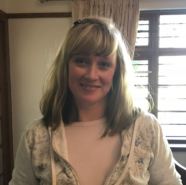
About the author
Robbie Cheadle was born in London in the United Kingdom. Her father died when she was three months old and her mother immigrated to South Africa with her tiny baby girl. Robbie has lived in Johannesburg, George and Cape Town in South Africa and attended fourteen different schools. This gave her lots of opportunities to meet new people and learn lots of social skills as she was frequently “the new girl”.
Robbie is a qualified Chartered Accountant and specialises in corporate finance with a specific interest in listed entities and stock markets. Robbie has written a number of publications on listing equities and debt instruments in Africa and foreign direct investment into Africa.
Robbie is married to Terence Cheadle and they have two lovely boys, Gregory and Michael. Michael (aged 11) is the co-author of the Sir Chocolate series of books and attends school in Johannesburg. Gregory (aged 14) is an avid reader and assists Robbie and Michael with filming and editing their YouTube videos and editing their books.
Find and follow Robbie
Robbie’s Inspiration Blog Goodreads Facebook YouTube
Amazon author page Twitter: @bakeandwrite
 Books by Robbie and Michael Cheadle
Books by Robbie and Michael Cheadle
The Sir Chocolate books are a delightful marriage of story, verse and cookery
… a perfect recipe for sharing with children. Silly Willy goes to Cape Town tells the adventures of two very different brothers…and includes five party cake ideas.
You can purchase the Sir Chocolate books from:
or you can buy them in South Africa directly from the authors by emailing Robbie Cheadle at sirchoc@outlook.com.

Robbie also writes as Roberta Eaton
Roberta Writes Blog Twitter Facebook
Robbie writes: My interest in English history and the research for my recent book, While the Bombs Fell, written with my mother, Elsie Patricia Eaton, and published under my married name of Robbie Cheadle, sparked an interest in, and further historical research into, the various ghosts that are said to haunt the town of Bungay in East Anglia. The people who are purported to now be ghosts lived in a far greater range of time periods than I had researched previously. While the Bombs Fell is about life for an English farming family living in Bungay during World War II and covers the historical time period from 1939 to 1944 (the book ends just after D-Day and book 2 will feature the end of the war). Some of the ghosts of Bungay originate from the 12th century.
I had an idea for another book that would feature the ghosts I had discovered and researched. This book idea included an introduction that I think of, now that it is finished, as a Canterbury Tales of Bungay ghosts. It includes fictionalised accounts of the stories of each of the ghosts featured in the story. Each story required extensive research into the particular time period including food, drink and clothing from that ghosts particular time period.
I was advised by various other writers that I should separate my new supernatural and horror stories from my children’s books for marketing purposes. This separation has resulted in my new blog, called Roberta Writes, together with a separate email address and twitter account. I am using this separate profile for sharing my thoughts on, and discoveries about, historical characters and events that feature in the new book, Nemesis, or that just interest me. I am also sharing some of my more cynical poetry about modern life and current world events. Nemesis will be published under my maiden name of Roberta Eaton and, I am hoping, it will be the first of a number of supernatural books based on real historical events.”

Tell me a story!
If you are a writer, artist or photographer…If you have a poem, story or memoirs to share… If you have a book to promote, a character to introduce, an exhibition or event to publicise… If you have advice for writers, artists or bloggers…
If you would like to be my guest, please read the guidelines and get in touch!


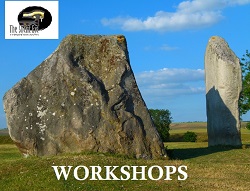



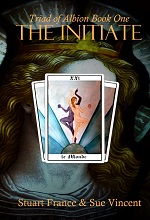


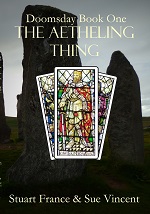
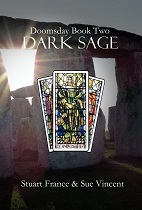
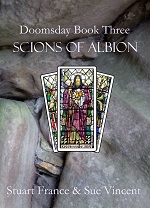
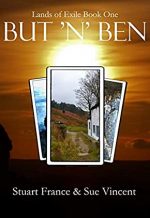






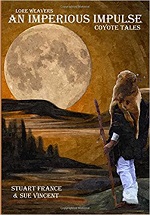


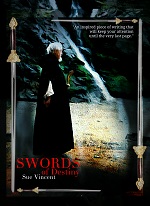








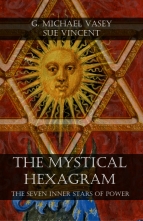

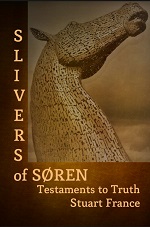


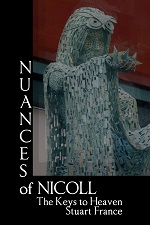


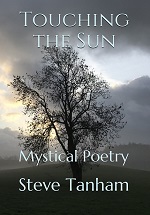

A great post 💜💜
LikeLiked by 2 people
Thank you, Willow. I didn’t know about the War Rooms and I found our tour very itneresting.
LikeLiked by 1 person
I know about them but to my shame I have never seen them 💜
LikeLiked by 1 person
Reblogged this on ❧Defining Ways❧.
LikeLiked by 1 person
Thanks for sharing 🙂
LikeLiked by 1 person
Thank you for sharing.
LikeLiked by 1 person
Great post. Fascinating reblogged everywhere.
LikeLiked by 2 people
Thank you, I am so pleased you enjoyed this.
LikeLiked by 1 person
Great post Robbie with so much interesting info 😍
LikeLiked by 2 people
Thank you, Ritu. There is nothing more interesting than English history.
LikeLiked by 1 person
I know you love it!
LikeLiked by 1 person
Very interesting, Robbie.
LikeLiked by 2 people
Thank you, Darlene.
LikeLiked by 2 people
Sounds like Churchill and his staff Kept Calm and Carried On!
LikeLiked by 2 people
I suppose they didn’t have much choice but to keep going. I think working and sleeping underground must have been horrible. A very brave and devoted team of people Churchill had working for him.
LikeLiked by 1 person
Thank you so much for hosting me with this post and extract from my new book, Sue.
LikeLike
It is always a pleasure, Robbie 🙂
LikeLiked by 1 person
Very interesting info, Robbie! Thank you for bringing important things from the history back. Michael
LikeLiked by 2 people
Thank you, Michael
LikeLiked by 1 person
I have/ wish to thank you, Robbie! This information you brought is very interesting too. We should never forget what happend in the past. I hope there is a great progress in you project. Will be a pleasure to read first hand information too. Best wishes also to you mom. Michael
LikeLiked by 1 person
Thanks Sue for guesting Robbie. I enjoyed the excerpts from her and her mother’s book.
LikeLiked by 1 person
I wish Robbie and her Mum the best of luckk with their book 🙂
LikeLiked by 2 people
I am pleased to hear that, Susan
LikeLiked by 1 person
Great post. I enjoyed the stories from the War Room and Robbie’s (and her mum’s) book sounds fascinating.
LikeLiked by 1 person
I agree, Mary.
LikeLiked by 1 person
Thank you, Mary. It is amazing to know how people had to live during the war and it wasn’t that long ago.
LikeLiked by 2 people
Scarcely a blink of an eye in terms of time, Robbie.
LikeLiked by 2 people
Reblogged this on Robbie's inspiration and commented:
I was over at Sue Vincent’s lovely blog yesterday with a post about Churchill’s War Rooms and an extract from While the Bombs
Fell. Thank you for hosting me, Sue.
LikeLiked by 1 person
Always a pleasure, Robbie!
LikeLike
Reblogged this on newauthoronline and commented:
They don’t make them like Churchill anymore, unfortunately. I very much enjoyed reading this post. Kevin
LikeLiked by 2 people
Thank you for sharing, Kevin. Much appreciated.
LikeLiked by 1 person
Hi Robbie and Sue. This is a fun post. Those metrics about Churchill’s writing are astonishing.
Robbie, I love that you included recipes of the era in your book. That’s a lovely touch. Hugs!
LikeLiked by 2 people
Thanks Teagan. I thought it was a good idea to add the recipes which keeps this book in line with my others. Have a great weekend.
LikeLiked by 1 person
Lovely… you have a wide range of interests
LikeLiked by 2 people
Thank you, Bella.
LikeLiked by 2 people
My goodness, I ate up every word of this book review and interview. Robbie is one of the best, and I can’t wait to read this book!! Robbie, will it be available on Amazon?
LikeLiked by 2 people
Thank you, Jennie, you are very kind. I checked today and it is now available on Amazon US. This is the link: https://www.amazon.com/author/robbiecheadle
LikeLiked by 2 people
Wonderful!!! 😀
LikeLiked by 2 people
My mother in law was one of the people who drew relief maps for the map room. She was an artist and that was her war effort job.
LikeLiked by 2 people
How interesting, Tandy. Your mother in law must have some stories to tell about that.
LikeLiked by 2 people
What a fascinating post with so much history. I think When the Bombs Fell will be a very interesting read.
LikeLiked by 2 people
Thank you, Norah. I hope readers think so.
LikeLiked by 2 people
I have no doubt they will.
LikeLiked by 1 person
Fabulous post Robbie. Loved the tidbits about the Churchill’s war room. I bought this book and look forward to reading it as WWII nonfiction and historical fiction are 2 of my favorite genres to read. ❤
LikeLiked by 2 people
Thank you, Debby. I hope you enjoy it. I feel this is an important book for me and my mom. Hugs.
LikeLiked by 2 people
I’m sure it will. I’ll be sure to review when I get there Robbie 🙂
LikeLiked by 1 person
Thank you, Debby
LikeLiked by 1 person
🙂
LikeLike
Reblogged this on Have We Had Help? and commented:
A little something from Robbie via Sue 😉
LikeLiked by 2 people
Thank you for sharing, Jack.
LikeLiked by 1 person
I’ve read some historical books and compilations on the subject, but nothing beats a personal account. Thanks, Robbie and thanks to your mother and good luck with the book. It is very important that these events are never forgotten.
LikeLiked by 2 people
Accounts of the war often focus on the men in the trenches so to speak, Olga. I found it fascinating learning about how the war impacted on ordinary people trying to carry on with their lives in a small town.
LikeLiked by 1 person
Interesting! Thanks for sharing ladies. Robbie, your book sounds as compelling as these facts about war. I would read it soon.
LikeLiked by 2 people
Thank you, Balroop, I appreciate your comment.
LikeLiked by 1 person
Hi Sue! Great to learn more about Robbie, as we have recently found each other’s blogs. I enjoy reading about other people’s experiences during World War II, as my American parents, their friends, and my aunts and uncles were all involved in the war in various ways. It’s great, Robbie, that you and your mom worked together on her story. You’re a busy lady!
LikeLiked by 2 people
Thank you. It was a very rewarding process to write with my mom. I learned so much more about her and my own family.
LikeLiked by 2 people
I helped my dad publish his memoir and he included a chapter on WW2. He was 17 at the time and spent a year in college before joining the Navy. Imagining how teenagers at the time had to deal with the realities of war makes me understand how lucky I have been.
LikeLiked by 1 person
I thoroughly enjoyed reading this post Robbie. Lots of interesting snippets. Churchill was a very prolific writer indeed. 🌼
LikeLiked by 2 people
I am glad you enjoyed reading this post, Brigid. I didn’t realise he wrote as much as this. I have read most of his speeches.
LikeLiked by 2 people
I like that tidbit about the inspiration for Miss Moneypenny. Fascinating stuff, Robbie.
LikeLiked by 2 people
Thanks Teri, that was a surprise for me too. My mom met Roger Moore when she was working in a hotel in London many years ago.
LikeLiked by 1 person
Reblogged this on Stevie Turner and commented:
We visited the Cabinet War Rooms last year. Fascinating place! Great post, thanks Robbie and Sue.
LikeLiked by 2 people
Thanks, Stevie 🙂
LikeLiked by 2 people
Thank you for sharing, Stevie.
LikeLiked by 2 people
You’re welcome.
LikeLiked by 1 person
Fascinating information in the beginning and introduction to your book, While the Bombs Fell. I will definitely add it to my TBR list. I am so excited about your supernatural and horror blog and book! Those genres are right up my alley. Congratulations on your new book and I wish you all the best on your future projects. 😀 xx
LikeLiked by 2 people
Thank you, Vashti, I appreciate your support. Horror and supernatural seems to be my new area of interest.
LikeLiked by 2 people
I’m glad. 😉
LikeLiked by 1 person